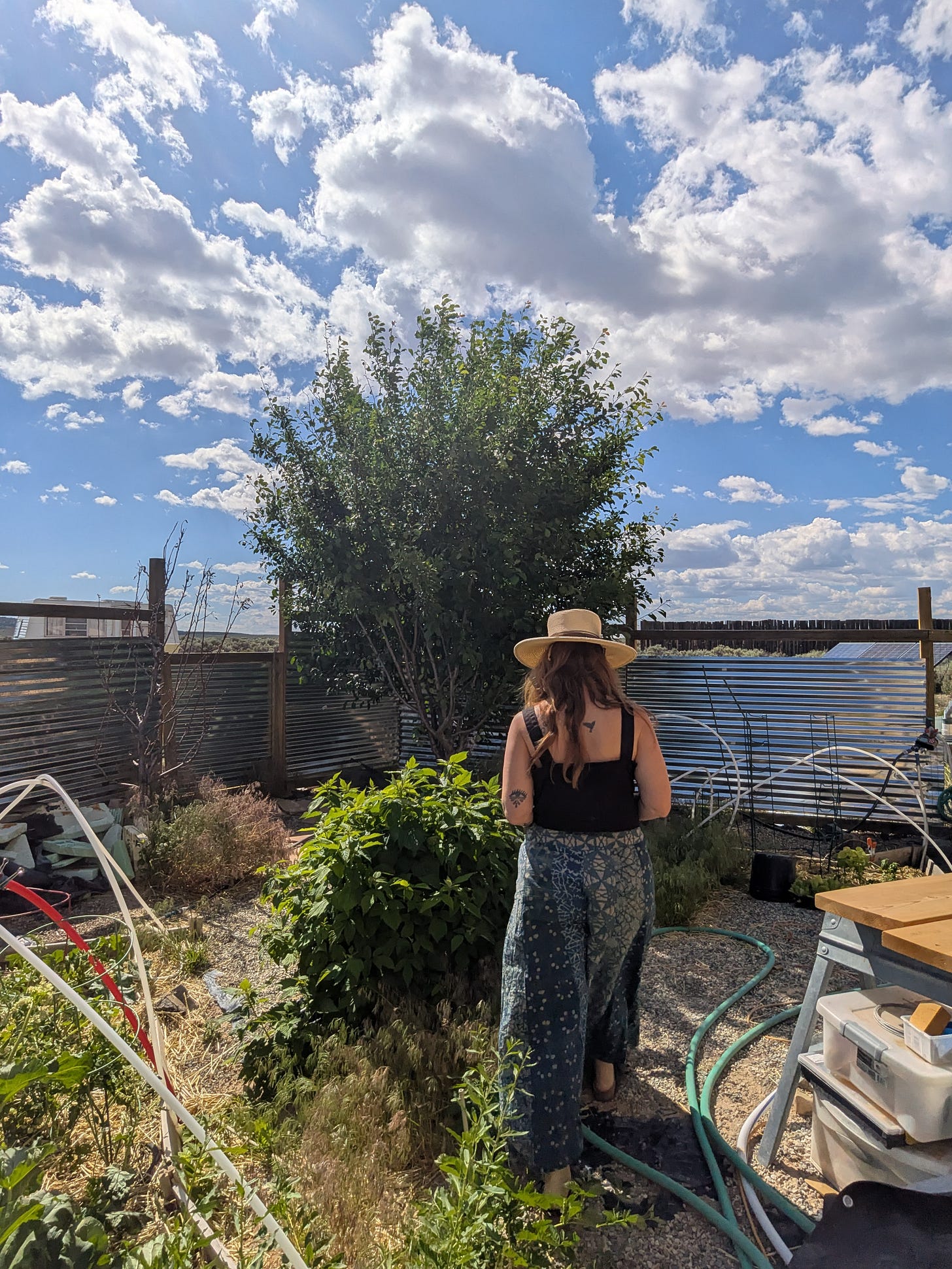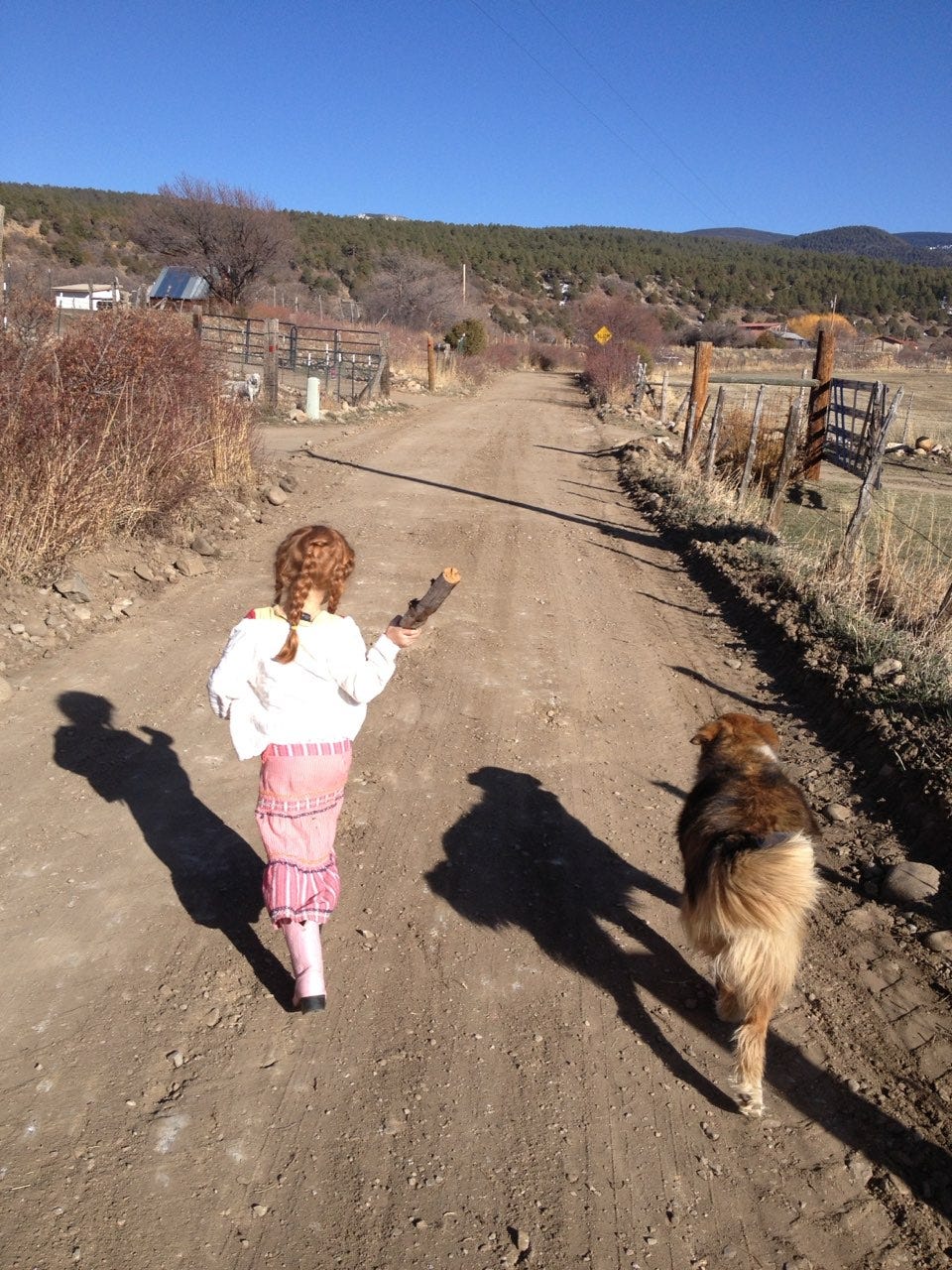Are You Ready for the Country?
The Case for Rural Revitalization
“Give me the country! where all is serene;
Where the air is pure and fragrant and clean,
And noise of the city is far away;
Where gaiety thrives through each night and day.”
~Gertrude Tooley Buckingham, Give Me The Country!
Moving from the City to the Country
Across the States, lower- and middle-income urban residents are feeling the brunt of inflation more than anyone. Rent and housing prices have increased as has the cost of everyday essentials, while wage growth remains limited. I often hear up-and-coming young folks complaining about the high cost of living in the United States right now, and yet, and yet, I wonder if they might consider the personal and philanthropic benefits of moving to the country.
I grew up in the New York City suburbs and spent the entirety of my teen years hanging out in the city from the graffiti-strewn subways, drug den storefronts and Time Square hookers of the 80s to the post-Guiliani tough-on-crime clean-up of the 90s, and leaving before the big box stores hit Houston in the 00s. I was very certain by the time I left college that I did not want to live in NYC. I did not like that every time I stepped out the front door and onto my stoop, I would be immediately immersed in crowds. I did not like the rapid pace of movement nor the intense vigilance required to sustain a life in the Big Apple.
I moved to Seattle, thinking that I might do better in a smaller, mellower city. I worked in indie bookstores until I was broke enough to work for Amazon. I was there for the WTO Conference riots of ‘99 and New Year’s Y2K. For the two years I lived there, I had an amazing time eating at all the vegan restaurants, going to concerts, museums and festivals, shopping at great thrift stores and generally enjoying the culture of city life immensely. And yet, I was constantly frazzled. It was like my nerves were vibrating on high. My speech was unnecessarily emphatic, and I was consistently seeking escapes, weekending in the Cascades, San Juans and Olympic National Park.
Discovering Rural Life in Alaska
After a series of coincidences, I ended up moving to Alaska, the farthest away I could possibly get from urban living. In Alaska I lived in a very small rural communities and discovered the joy of small-town life. After experiencing the benefits of living in small rural communities in Alaska, I knew rural life was for me. We moved to Taos, New Mexico in 2005 and have been in this small community ever since.

I recognize that rural life might not be for everyone. As of 2020, about 83% of Americans live in urban areas, according to the latest U.S. Census data. But across the United States, there's been a new push to revitalize rural communities. The USDA has implemented new programs like the Emergency Commodity Assistance Program (E-CAP) to provide direct economic and disaster aid to rural areas and struggling farmers. The agency is also expanding funding for rural infrastructure, broadband internet, healthcare and childcare, aimed at closing gaps between rural and urban regions. States in the Midwest have launched new offices focused solely on rural affairs to coordinate resources and address workforce shortages, infrastructure upgrades, and support for business development in small towns.
Cost of Living in Rural America: New Mexico to New York
The main reason to consider moving to the country might be cost of living. Inflation is real and we all can feel it across the nation, in some places more than others. In my small community, I have witnessed the cost of housing, restaurants and groceries skyrocket since the pandemic began. And yet, you can still buy an off-grid quarter acre here for $900. In other rural areas of the country, you can still find houses for under $100,000.
A.M. Hickman wrote recently about living inexpensively in upstate New York in his article “How to Live on $432 a Month in America (For All Expenses)” and it blew my mind. He writes, “Yes, startling as it could be to many ‘Zoomers’ and ‘Millennials,’ it just so happens that if you really want to become a member of the landed gentry, it’s really not so far out of reach just the moment you decide that you like the snow, don’t need access to the hottest clubs and the biggest cities, and can be more than happy with getting cozy in a smaller house.”
If your job is remote, it opens up the possibility to live anywhere. And while many places like Taos, New Mexico have been negatively affected by people from California, Colorado and Texas moving here and driving up the housing prices, there are many places that exist that would gladly welcome the economic boom of newcomers with independent incomes who would spend their money at local businesses and maybe even start their own businesses, revitalizing crumbling downtown locales.
“I'm going where the water tastes like wine
We can jump in the water
Stay drunk all the time
I'm gonna leave this city, got to get away
I'm gonna leave this city, got to get away
All this fussing and fighting, man, you know I sure can't stay”
-Canned Heat, Going Up the Country
Affordable Homes Across the States
Here’s an idea of housing costs in small towns in the United States in 2025:
A two-story farmhouse in rural Nebraska on almost 6 acres recently listed with a starting bid of $100,000. Many small homes and farmhouses in Nebraska, Kansas, and the Midwest are regularly posted for $75,000–$100,000, particularly those in need of some updating.
1930s farmhouses in rural parts of Virginia and Pennsylvania have asking prices in the $75,000–$95,000 range. These are detached homes commonly with 2 to 5 acres lots.
Properties labeled as fixer-uppers in Missouri and nearby ranch states can be found for $45,000–$70,000, occasionally less if located farther from town centers.
Adirondack-style cabins in secluded Michigan forests, suitable for year-round living, sell for $90,000–$95,000, often including a few acres of land.
Rental rates in small towns across the Midwest and South consistently run $600–$900/month for basic apartments or small houses.
Community, Nature, and Opportunity in Rural Towns
I can tell you from experience that the joy of living without a mortgage or rent is worth any sacrifice I must make. But here are some other great things about living in the country.
There’s a sense of belonging. As part of a small community, you are essential to the fabric of life. Often living in a small community, there is a sense that we are all depending on each other and people band together and help each other out.
Opportunities abound because people know you and your talents; they offer you gigs and jobs without a resume or references needed.
It’s easy to affect change in small communities. I was able to help start a recycling program and a youth-produced magazine with grant funding in Alaska. In New Mexico, we started a charter school and are currently volunteering with a new neighborhood association. I wrote a letter to the editor once protesting sexist comments in the paper and it was published.
Living rural means walking out your front door and into the forest. You don’t have to travel far to access wild spaces, and your food source comes from right down the road.
You can grow your own food and have multiple pets. The connection to the natural world is probably my favorite part.
Cleaner air and drinking water from the tap.
Lower crime rates.
What did I miss? What do you love about living in the country?

The country is a also a great place to raise free range kids more connected to the natural world, though schools may not be as good as in cities. “A quiet, secluded life in the country, with the possibility of being useful to people to whom it is easy to do good, and who are not accustomed to having it done to them; then work which one hopes may be of some use; then rest, nature, books, music, love for one’s neighbor—such is my idea of happiness.”
— Leo Tolstoy
The Challenges of Living in Rural Areas
Yeah, there are drawbacks. In rural towns, you don’t have anonymity, and you can’t burn too many bridges, so there will always be a balancing act, but we are all walking the line together. There aren’t going to be as many jobs or entertainment. Access to healthcare may be limited and your internet may be slower in some areas. You are also most likely going to have to drive long distances, although A.M. Hickman cites in his aforementioned article that he manages to take the bus everywhere. Depending on where you go, you may struggle to find like-minded people, but they’re there and you will. Put aside any stereotypes you have about country-folk and open your mind.
From an environmental perspective, although dense cities have public transit and less per-person energy usage, rural living offers ecological benefits such as biodiversity, regenerative agriculture, carbon sinks, and opportunities for land stewardship, such as living off grid or growing food forests.
Would You Trade City Lights for Rural Stars?
So, what do you think? Could you leave your city life behind for the country? Could you trade in your high heels for sturdy boots? Could you trade in your high-end gallery opening for a local craft fair or your Broadway play for community theater? Would it be worth it to be able to save money to travel or have enough to buy your own home or follow your dreams? What about the peace and quiet, the dark night sky and the peace it might bring you? Could it be worthwhile? Would you dare?
And how would our country benefit from people moving into rural areas? How would these areas become revitalized and diversified? How might we be able to promote more sustainable agriculture, renewable energy, and conservation of open space?
In many ways, our country is divided by an urban-rural divide that becomes most obvious during national elections. By revitalizing rural areas and making them more appealing to more people and by more people moving to rural areas and revitalizing them, improving infrastructure, healthcare, education, and economic opportunities for everyone, we may discover an America that is more harmonious, resilient and economically secure.
What do you think? Let me know in the comments if you’d be willing to leave your city life for the country, why or why not?



I forgot to mention the health benefits of living in greener spaces including less stress, less inflammation, quicker healing rates, and overall better mood. #facts
Driving around Denver, running errands, another reason to live in the country occurred to me--I hate traffic.